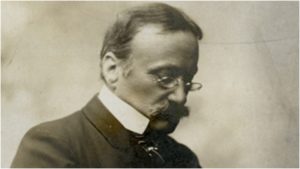
Opera Profile: Boito’s Lone Work ‘Mefistofele’ (Watch)
By David Salazar“Mefistofele” is Arrigo Boito’s only fully completed opera, and as such, it is a prized jewel.
The work, which premiered on March 5, 1868 at La Scala, is a faithful adaptation of Goethe’s “Faust.” Whereas most adaptations of the work focus on the first part of the work, Boito adapts both sections, including the the Helen of Troy sequence. As such, it is by far the most cohesive interpretation of the famed philosophical text in opera history.
The work has never been an overriding success and revivals are slim. However, it did get the stamp of approval from many major music lovers, including Wagner, who saw Boito as a promising composer. The opera’s opening and ending mirror one another with the celestial chorus returning again and again to comment on the events of the drama.
Short Plot Summary
A heavenly chorus strikes a deal with Mefistofele to do battle for the soul of Faust.
Dr. Faust and his pupil Wagner observe the Easter Celebrations but he senses that they are being followed by a malevolent friar. He later sees that same friar at his study; it is Mefistofele. He agrees to give his soul in return for worldly bliss for the rest of his life.
Now youthful, he seduces the young Margareta, who agrees to give her mother a sleeping potion so they can have a night of passion. At the Witches’ Sabbath he sees a vision of Margareta dead, but Mefistofele tells him that it was a false vision.
Faust finds Margareta out of her mind in a prison sell. She had poisoned her mother with the sleeping draught and had drowned the baby that she bore Faust. Faust attempts to save her but she refuses when she sees Mefistofele. She begs for salvation and dies earning it.
Now Faust has been transported back to Ancient Greece where he wins over the heart of Helen of Troy.
The final segment of the work sees Faust old once more, reflecting on how he failed to find the perfect experience he wanted in neither the past or present. He begs for God’s forgiveness and earns it from the celestial choir.
Watch and Listen
Here is a famed recording of the work starring Plácido Domingo, Eva Marton, and Samuel Ramey, arguably the foremost interpreter of the role in the late 20th century.
Categories
Opera Wiki

